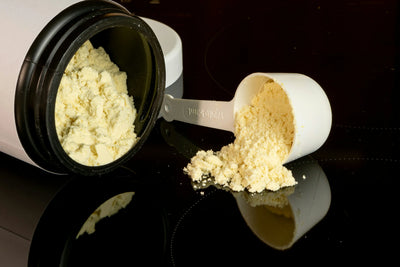Introduction
Finding out that your own dog is suffering from indigestion, diarrhea or constipation is really upsetting. As owners, we all want our fur kids to be healthy and happy. Today, I'm going to share with you some tips to improve your dog's digestion naturally. These methods are not only simple and easy to follow, but they will also help your dog to have a healthy gut while enjoying a good meal. Are you ready? Let's get started together!
Dietary Adjustments to Improve Gut Health for Dogs
1. Choose easily digestible food
If you want your dog to digest well, you have to start with the food first. High-quality dog food is the first choice, and it usually contains easily digestible ingredients that can be easily absorbed by your dog's stomach. However, dog food alone is not enough, we can also give the dog a little “material”, so that their diet is richer and more nutritious.
Pumpkin: This is a treasure! Pumpkin is rich in dietary fiber, can promote intestinal peristalsis, especially for constipated dogs. Steamed and mashed into a puree and mixed into dog food, dogs usually love it.

Yam puree: Yam contains amylase, which helps to strengthen the stomach, especially for dogs with weak spleen and stomach. Also steamed and mashed into a puree, feed in moderation.
Tip: Don't give your dog too much, once or twice a week is enough. After all, the dog's staple food is still dog food, these are just auxiliary. Every time I see my dog licking the bowl of pumpkin puree, tail wagging like a fan, I know this is the right move!
2. Reasonable mix of protein
Protein is essential for your dog to grow and stay healthy, but there is a limit to everything. Too much protein, on the contrary, may be detrimental to the good bacteria in the intestines and affect digestion. Therefore, owners should learn to mix and match wisely.
Choose easy-to-digest proteins: chicken and fish are good choices, they are not only good for digestion, but also provide high-quality protein. Every time my dog smells the aroma of cooking chicken, he will stand guard at the kitchen door, waiting with bated breath for the meal to start.
Control intake: Adjust according to your dog's age, size and activity level. For example, puppies and active dogs need more protein, while older or lazy dogs need to cut back appropriately.
For example: my Golden Retriever is an athletic dog that runs and jumps every day, so I would add some chicken breast to his dog food for energy. But if it's a little teddy that stays at home, you might want to feed it less meat and more vegetables. Finding the right balance for your own dog is the key.
3. Increase dietary fiber
Fiber is a little helper for intestinal health, making your dog's stools more formed and reducing ammonia in the feces for fresher air in the home. In addition to pumpkin, there are many other vegetables you can give your dog.
Carrots: rich in fiber and vitamins, cooked and chopped and mixed in dog food, dogs usually do not resist. Orange carrots also make the food bowl look prettier!
Spinach: It is also a fiber powerhouse, but it should be washed, chopped, and preferably cooked before feeding, so that the oxalic acid in raw spinach does not affect calcium absorption.
Note: Vegetables are not a staple, and are good in moderation. Dogs are carnivores after all, and too many vegetables may cause flatulence. Every time I feed it, I will observe my dog's reaction to make sure it is happy and comfortable to eat.
4. Supplement with Probiotics and Prebiotics
Beneficial bacteria in the intestines are the mainstay of your dog's digestion, and supplementing with probiotics and prebiotics can make them more active and digestion smoother.
Probiotics: Choose unsweetened yogurt and give your dog a small spoonful once or twice a week. The lactobacilli in yogurt can help regulate intestinal flora. The first time my dog ate yogurt, that little tongue licked happily!
Pet-specific probiotics: If your dog has a particularly sensitive stomach or is recovering, you can use a pet-specific probiotic preparation on the advice of your veterinarian for a more immediate effect.
Prebiotics: Ingredients like beet fiber provide food for beneficial bacteria and promote their growth. Some high-quality dog foods contain prebiotics, so owners can pay attention to the instructions on the package.
My dog has been suffering from diarrhea for a while, and my vet suggested that I give him some prebiotics. After a few days of trying, it really worked, the stool was formed, and the spirit was also good. It seems that intestinal health really can not be underestimated.
Improve the dog's digestive system, in fact, is not difficult, the key lies in the owner's care and patience. Choosing easy-to-digest food, matching proteins, increasing dietary fiber, supplementing probiotics and prebiotics, these methods are simple and practical. As long as you put your heart and soul into it, your dog's stomach and intestines will definitely get better and better.
Every dog is unique, and finding the right diet for him can take a little time and experimentation. For example, it took me weeks to figure out if my dog's favorite was pumpkin or carrots. But seeing him healthy makes it all worth it.
Adjusting Your Dog's Habits to Improve Dogs Gut Health
1. Regular feeding
Feeding your dog at regular intervals, just like we humans eat, will help your dog's stomach feel better. Imagine your dog standing expectantly by his food bowl at a fixed time every day, wagging his tail and waiting for you to serve him his meal. This habit will keep his digestive system organized and working like a programmed machine, stable and efficient. Don't let it eat too much too fast, overeating will make its stomach and intestines “surprised”, easy to trigger indigestion, or even diarrhea.
Why is it so important?
The dog's stomach is actually similar to ours, too casual eating habits will make it digestive rhythm disorder. For example, have you ever tried not to eat on time for a day, and your stomach is either bloated or gurgling? The same goes for dogs. Feeding at regular intervals not only reduces the burden on the stomach and intestines, but also allows it to develop a healthy rhythm of life.
Tip:
You can divide the day's food into two to three feedings, with smaller meals, so that your dog's stomach and intestines can slowly adapt. My dog used to love to grab food, eat too fast and always have an upset stomach. Since I switched to feeding my dog once a day in the morning and once in the evening, and controlled the amount, he has become much more gentle in eating, and his gastrointestinal problems are also much less. You can also try to find the right eating schedule for your dog.

2. Moderate exercise
Taking your dog for a walk every day not only lets it breathe fresh air, but also promotes peristalsis, which helps digestion. You can take a walk with it and walk slowly along the boulevard of the neighborhood; or run a few steps and let it chase you for fun; or even play some small games, such as throwing a ball for it to pick up. Exercise not only makes your dog's gut healthier, it also brings you closer together. Every time I come back from a walk with my dog and watch him licking his mouth contentedly, I know that his appetite has been awakened and he eats especially well.
Have you ever noticed that if you sit still for a long time, your stomach gets bloated easily? The same goes for dogs. A moderate amount of exercise can make its intestines move, and food is digested faster and smoother. Moreover, exercise can also consume its energy, and sleep more soundly at night. My Golden Retriever walks for half an hour in the morning and half an hour in the evening every day. Not only does it digest better, but its fur color is brighter, so it's a win-win situation!
How to start?
It doesn't have to be complicated, start with a 15-minute walk every day and observe your dog's condition. If he comes back from the run still alive, then add more time or intensity. Every dog has different stamina and preferences, so find a form of exercise that he enjoys and he'll be more than happy to cooperate.
3. Keep the environment clean
Your dog's home needs to be clean, too! Regularly clean its nest, toys and food bowl, and keep the environment dry and ventilated. Damp, dirty places are prone to bacteria and parasites, and dogs are especially susceptible to gastrointestinal problems if they spend a lot of time in such environments. Think about it, if we live in a dirty place, we will inevitably feel uncomfortable even if what we eat is good, right? The same is true for dogs. A clean litter will help it sleep and naturally have a smoother digestion.
One time I was so busy that I forgot to clean my dog's den and he slept in a somewhat damp area overnight. The next day, he started to have diarrhea and wilted in the corner, which broke my heart. I took him to the vet, and the doctor told me that the unclean environment might be one of the reasons. Since then, I haven't dared to be lazy and cleaned his living space every week. Since then, I have not been lazy and cleaned his living space once a week. Since I have kept his environment clean, his tummy has not been upset.
Every week, wipe down the food and water bowls with a mild detergent, dry his pads, and check for moisture in the litter box. It doesn't take much time, but it can help your dog's health a lot. A clean environment also puts him in a better mood, and you'll find him playing with more energy!
Improving your dog's digestive system is not difficult, but depends on the care and patience of the owner. Feed your dog at regular intervals to give it a steady rhythm in its intestines and stomach; exercise in moderation to keep its body and digestion moving together; and keep the environment clean to provide it with a healthy little world. These methods are simple and practical, as long as you put your heart and soul into it, your dog's stomach and intestines will definitely get better and better.
Every dog is unique, and it can take a little time and trial and error to find the right routine for your dog. For example, it took me weeks to figure out the best feeding times and exercise for my dog - one meal at 7am, one meal at 6pm, and a controlled walk of about half an hour. But seeing him healthy and running around wagging his tail at me makes it all worth it.
Feel free to try our product: Noora Probiotic Supplement, which contains a wide range of ingredients that contribute to gut health.

Other Things You Can Do to Improve Dog Gut Health
1. Regular deworming
Did you know that parasites are the enemy of your dog's stomach? Parasites are a big enemy of your dog's stomach and intestines! Roundworms, hookworms, tapeworms ...... These little bad guys will not only rob your dog of nutrition, but also make his stomach and intestines uncomfortable, with symptoms such as diarrhea and vomiting. In severe cases, the dog's stomach will bulge like a small leather ball, which is heartbreaking to see. Therefore, regular deworming is essential.
How to do it?
Puppies: usually start from 2-3 weeks old, deworming every 2-3 weeks until 3 months old.
Adult dogs: deworming every 3-6 months, you can consult your veterinarian for the exact frequency.
Deworming method: you can choose oral medicine, drops or injection, remember to choose pet-specific!
Tips: After deworming, your dog may excrete worms, don't panic, this is normal. You can observe your dog's poop, and if you find worms or eggs, it means that deworming is working. After my dog was dewormed for the first time, I saw a few small worms in his poop. Although it was a bit disgusting, I was relieved that I finally helped him get rid of the bad stuff.
Deworming may seem simple, but it can greatly reduce the burden on the dog's stomach and intestines. After all, who doesn't want their fur child to eat well and sleep well?
2. Avoid feeding human food
Have you ever had the experience of your dog staring at you with bated breath during a meal, and in a moment of weakness, you gave him a little bit of the food on the table? Although this seems to be love, but in fact it is harming it. Much of human food is indigestible and even harmful to dogs. For example, greasy meats, spicy dishes, desserts with high sugar content, all of these will turn your dog's stomach and intestines upside down.
Why can't you feed them?
Greasy food: easy to cause pancreatitis, the dog will have stomach pain, vomiting.
Spicy food: stimulate the stomach and intestines, leading to diarrhea.
Chocolate, grapes, onions: these are poisons for dogs and can lead to poisoning.
What to do?
Keep feeding your dog food, preferably high quality, easy to digest.
If you want to give your dog additional meals, you can choose some pet-specific snacks, or cook some chicken breast, carrots, cut into small pieces to feed.
Educate your family and friends not to feed your dog random food.
My dog once ate the spicy chicken wings I dropped on the floor, and the next day he started to have diarrhea and ran to the bathroom until his legs were weak. I was so heartbroken that I rushed to take it to the doctor. After that, I never dared to let human food appear where it could touch. Think about it, the dog's stomach and intestines are so fragile, let's not make fun of its health.

Choosing the right food for your dog will not only make its digestive system smoother, but also reduce a lot of unnecessary trouble. Love it, you have to control your own hands!
3. Observe the state of your dog
Dogs can not speak, when the body is not comfortable, only through some small actions to tell you. For example, suddenly do not like to eat, always licking the stomach, stool becomes thin or dry hard, these may be the digestive system out of the signal. As owners, we need to learn to read our dogs and detect problems in time.
How to observe?
Diet: If your dog suddenly loses its appetite, or eats unusually fast or large amounts of food, you should pay attention to it.
Defecation: Observe the shape, color and smell of the poop every day. Healthy poop should be formed, not dry or dilute, and dark in color.
Behavior: If your dog licks his stomach frequently, curls up, or walks with his back arched, he may have a tummy ache.
What to do if you find a problem?
Don't procrastinate and rush your dog to the vet. The veterinarian will examine the dog to find out the cause of the problem and prescribe the right medicine.
When you are at home, you can prepare some warm water for your dog and encourage him to drink more to help digestion.
Record your dog's diet and bowel movements to facilitate the veterinarian's diagnosis.
Once my dog didn't eat properly for two days and kept lying down, I thought at first that he was just tired. On the third day, it started vomiting and I realized something was wrong. I rushed it to the hospital, and the doctor said it was indigestion, and prescribed some medicine, and it took a few days of conditioning to get better. Since then, I spent a few minutes every day to observe its state, and never dared to be careless again.
A dog's condition is like a mirror, reflecting its health. By being more careful, you can detect the problem earlier and let it suffer less.
Summary
Dogs are our family, they don't talk, but they show their trust in us with their eyes and actions. As dog parents, we can make them less uncomfortable and happier with a little extra effort on our part. We hope these tips will help you keep your fur child healthy and by your side. After all, watching him happily chewing on his toys and running towards you is our greatest happiness!





